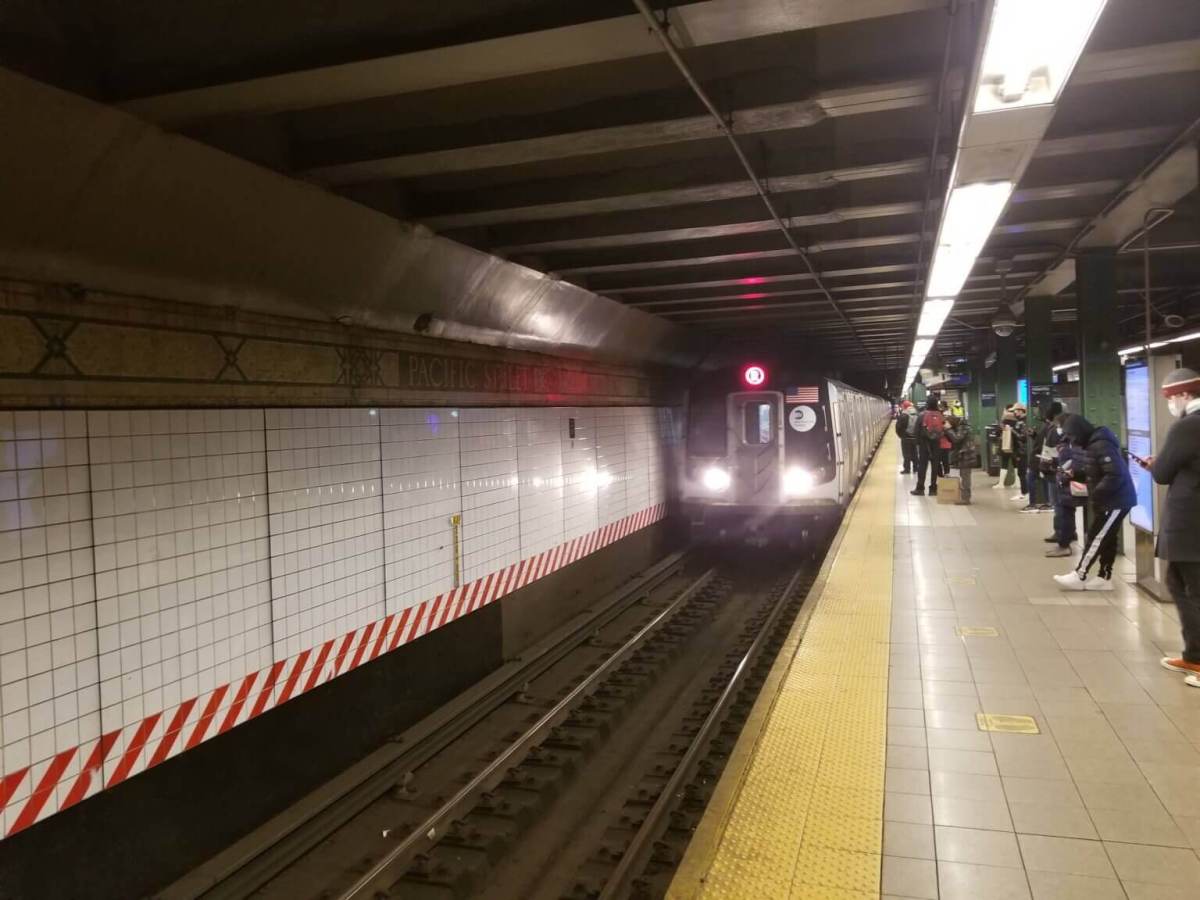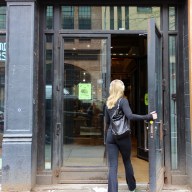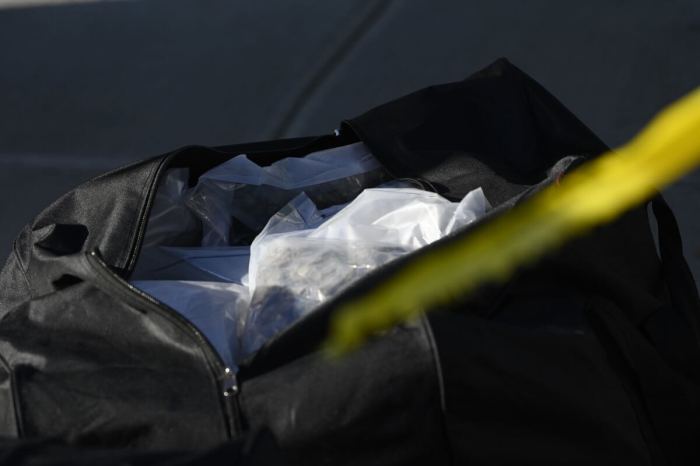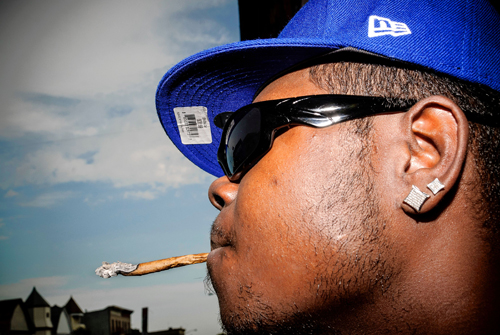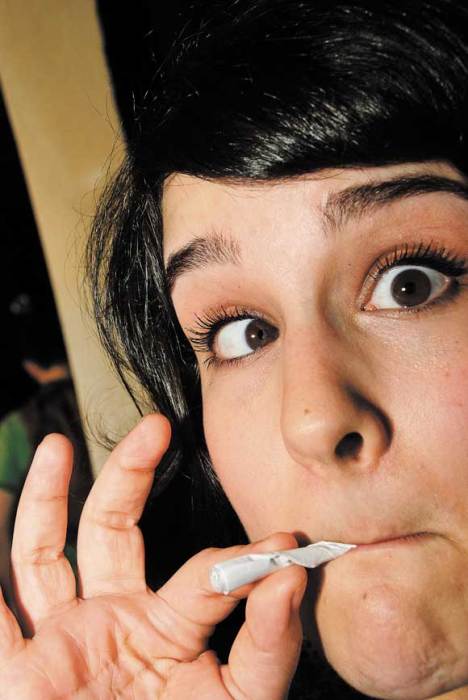An aggrieved Metropolitan Transportation Authority employee filed a lawsuit against the agency last week alleging rampant discrimination over his legal use of medical weed to treat myriad health issues and claiming he is forced to attend drug counseling four times weekly, is subject to constant random drug tests, and was demoted to a lower-paying job after testing positive on a drug test.
According to court filings, Myles Watson, 44, currently works as a station cleaner for the MTA despite being a master-certified fiber optic technician who formerly worked as a telephone maintainer. He says that’s because the transit authority clings to outdated norms against toking — despite both medical and recreational use now being legal in the Empire State — and has punished him for it despite suffering from debilitating medical conditions necessitating its use.
Watson, who filed suit in Brooklyn Supreme Court on Friday, is seeking monetary damages and an injunction against the MTA requiring it to comply with the state’s medical marijuana law.
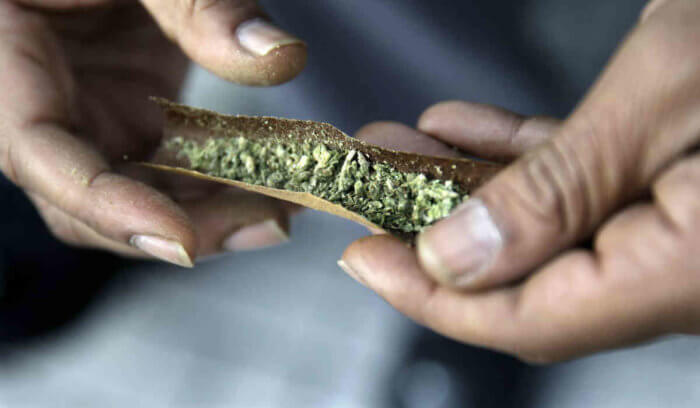
Watson was hired by the MTA in 2015 as a telephone maintainer after attaining a near-perfect score on his civil service exam, he claims, and the following year he was certified as a master fiber optic technician. In 2017 he was injured in a car crash, suffering two bulging discs and three herniated discs in his neck and requiring surgery. Watson began using weed to cope with his pain and stomach issues after being unable to take opioids due to pre-existing conditions.
When a random drug test turned up positive in March 2019, Watson says he was suspended from work and forced into a drug counseling program, despite his bosses knowing about his injury; he completed rehab a month later and was allowed to return to work.
After another car crash in December of that year led to a torn meniscus, Watson began using CBD, which he says significantly helped him with the intense pain. But when he failed a second drug test in October 2020, the MTA initially attempted to fire him but was impeded by the collective bargaining agreement signed with Transport Workers Union Local 100; after that failed, he was suspended again.
Watson obtained a medical marijuana card the following month, and was also diagnosed with Crohn’s Disease, which causes inflammation of the digestive tract. But when he presented his card to the MTA and requested a reasonable accommodation, but was denied, and following meniscus surgery, he was allegedly forced to attend rehab and four-times-weekly drug counseling sessions.
While suspended without pay to attend rehab, Watson said he was constantly on call for random drug tests. During that time he says his car was repossessed, his daughters lost their health insurance, and his home was nearly foreclosed upon, but was saved due to COVID protections in place at the time.
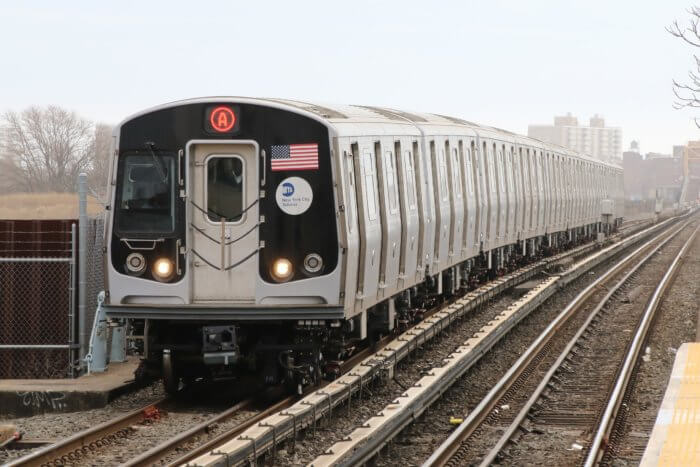
After finishing rehab, Watson says he was demoted to station cleaner, and was docked $9-per-hour in wages. He is forbidden from using his prescription medical marijuana and is still forced to attend drug counseling thrice weekly.
“Basically, the argument is, that he couldn’t perform the safety position because he would smoke marijuana at night,” said Watson’s lawyer, John Scola, by phone. “But that’s just not how marijuana works.”
Watson says that the MTA is in violation of the state’s medical marijuana law and anti-disability discrimination statutes by failing to provide him with reasonable accommodations.
“The Defendants know or should know that Plaintiff could work any role with his medical marijuana prescription as he would not use his medication while working,” the June 3 court filing reads. “There are no lingering effects that would prevent him from performing the essential functions of his employment.”
Recreational marijuana was legalized for adults in New York State in 2021, but transit workers are still forbidden from using the sticky icky, are still subject to drug testing, and can even still lose their jobs for using it due to federal regulations prohibiting drug use by public transit workers. NYPD and FDNY employees are under similar restrictions.
An MTA spokesperson said the agency does not comment on pending litigation.


